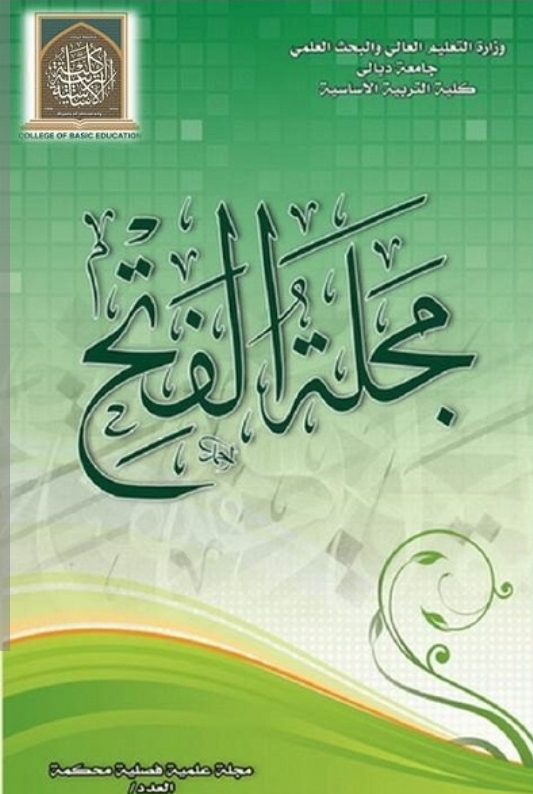Instructor-Based Evaluation of Using E-Learning Among EFL Students in Iraq
DOI:
https://doi.org/10.23813/FA/27/1/22Keywords:
Evaluation, E-Learning in Iraq, Learning Management System, technology and workloadAbstract
Life may be a continuous handle towards innovation and E-government with all diverse parts. In such a business, how can E-learning offer assistance to move forward a country and offer assistance in developing a nation? This believe gives a careful foundation on E-learning and how it has come around. This study aims to focus on examining the preferences of instructors toward E-learning in teaching English as a foreign language in Iraq when life is intensive with technology. Also, this paper attempts to answer the following question: Do instructors in Iraq agree with using E-learning for teaching English as a foreign language?
The respondents they think about are the teachers, who are included within the e-learning, whereas information was analyzed by utilizing the computer program SPSS form 16 and Microsoft exceed expectations. This study concluded with the following:
1.E-Learning in Iraq can change Higher Instruction successfully within the setting of the Arab world.
- The unused innovation in learning offers unbounded openings for making strides in instruction.
References
Cleveland-Innes, M., Garrison, D.R. & Kinsel, (E. 2007). Role adjustment for learners in an online community of inquiry: Identifying the challenges of incoming online learners. International Journal of Web-based Learning and Teaching Technologies, 2:1-16. 2. Hedberg, J.G. & Ping, L.C. (2004). Charting trends for e-learning in Asian schools. Distance Education, 25:199-213.
Kumar, A. (1999). Learner characteristics and success in Indian distance education. Open Learning, 14(3):52-58.
Kanwar, A. S. (1999). Issues in course development: The experience at Indira Gandhi National Open University in India. Paper presented at the Pan-Commonwealth Forum on Open Learning, Abu Dhabi,1-5 March 1999. Commonwealth of Learning.
K.H. Fee,)2005(. Delivering E-Learning: A Complete Strategy for Design Application and Assessment, London and Philadelphia: Kogan Page.
K. Cheng, )2006(. A Research Study on Students’ Level of Acceptance in Applying E-Learning for Business Courses – A Case Study on a Technical College in Taiwan. Journal of American Academy of Business. Volume 8. Number 2. pp: 265-270.
S.Z. Keith,(1996). "Self-assessment materials for use in portfolios", 6(2), 178-192. http://dx.doi.org/10.1080/ 10511979608965822.
Rosenberg MJ, )2001(. E-Learning Strategy for Delivering Knowledge in the Digital Age. New York: Longman.
T. Fitz Patrick, )2012(."Key Success Factors of eLearning in Education: A Professional Development Model to Evaluate and Support e-Learning", US-China Education Review, 789-795.
P. CH Li, J. Masters,)2009(. "ELearning and knowledge management in the early years: Where are we and where should we go", Knowledge Management and eLearning: An International Journal, 1(4), 245-250.arey, Data protection: a practical guide to UK and EU law. Oxford University Press.
Garrison,D. and Anderson,T. (2003). E-Learning in the 21st Century. A Framework for Research and Practice. London: RoutlegeFalmer.
Moore, J.L., Dickson-Deane, C., Galyen, (2011) e-Learning, online learning, and distance learning environments: Are they the same? The Internet and Higher Education.
Urdan, T. A. & Weggen, C. C. (2000) Corporate e-learning: exploring a new frontier. WR Hambrech CO.
Meyen E., Aust, R., Gauch, J.M., Hinton, H.S., Isaacson, R.E., Smith, S.J. and Tee, M.J.(2002) E-learning: a programmatic research construct for the future. Journal of Special Education Technology.
Khan, B. (2005) Managing e-learning strategies: design, delivery, implementation and evaluation. Hershey, PA, USA.
Farah Habib Chan chary, Samiul Islam(2011). Is Saudi Arabia Ready For E-Learning? – A case Study , Department of Computer Science, Najran University, Najran, Saudi Arabia.
Downloads
Published
How to Cite
Issue
Section
License
Copyright (c) 2023 https://creativecommons.org/licenses/by/4.0/

This work is licensed under a Creative Commons Attribution 4.0 International License.
حقوق النشر والترخيص
تطبق مجلة الفتح للبحوث التربوية والنفسية ترخيص CC BY (ترخيص Creative Commons Attribution 4.0 International). يسمح هذا الترخيص للمؤلفين بالاحتفاظ بملكية حقوق الطبع والنشر لأوراقهم. لكن هذا الترخيص يسمح لأي مستخدم بتنزيل المقالة وطباعتها واستخراجها وإعادة استخدامها وأرشفتها وتوزيعها ، طالما تم منح الائتمان المناسب للمؤلفين ومصدر العمل. يضمن الترخيص أن المقالة ستكون متاحة على نطاق واسع بقدر الإمكان وأن المقالة يمكن تضمينها في أي أرشيف علمي.
لمزيد من المعلومات، يرجى متابعة الرابط: https://creativecommons.org/licenses/by/4.0/.



